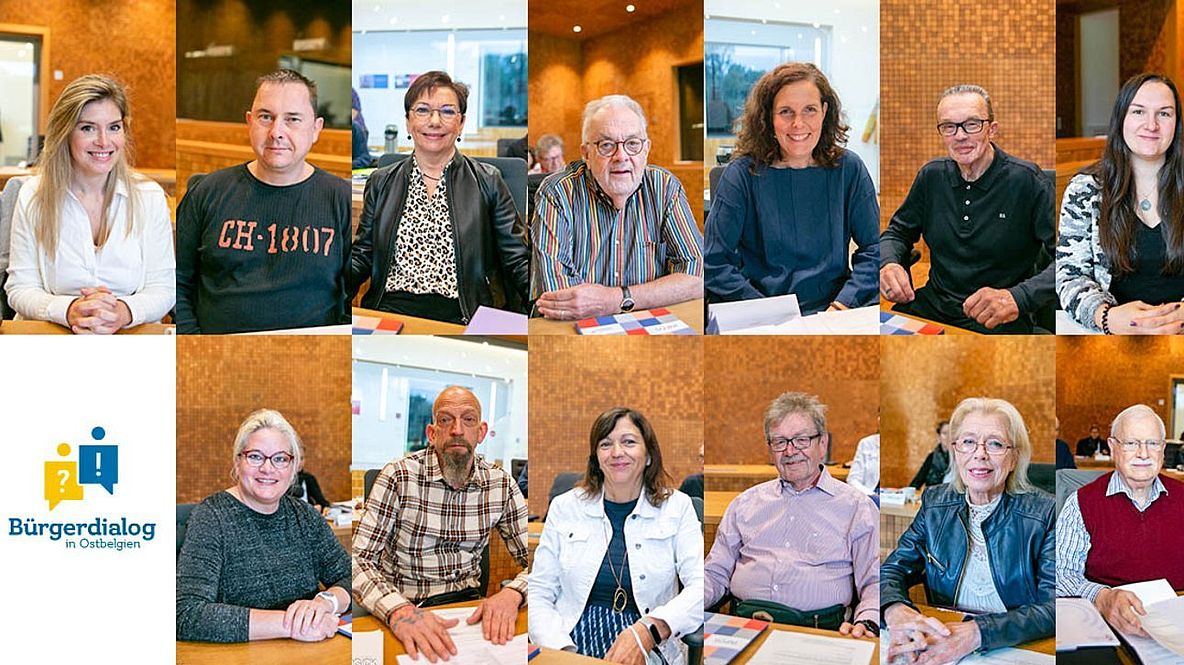45 ideas on the future of housing

In the German-speaking Community (DG) of East Belgium, randomly selected citizens decided on their recommendations for "affordable and sustainable housing" on 19 February 2022. The 45 ideas were handed over to the responsible politicians on the same day.
The citizens' report of the citizens' assembly contains proposals on the following topics
- Housing for young people
- Living in shared flats and alternative forms of housing
- Making private housing affordable
- Social housing
- Housing in rural areas
The citizens' assembly recommends, among other things, writing a study as a needs analysis on the needs of young people: Who concretely needs / "deserves" support for what? Young people with fewer opportunities, disadvantaged young people and young people in socially critical situations should be given special consideration. Financing possibilities for young people should be promoted, alternative forms of housing (shared flats, tiny houses, housing alternatives in mixed units young & old) should be developed as a first step towards owning one's own flat.
Legal framework for shared ownership
Regarding shared housing, the citizens' assembly proposes, among other things, to make existing laws public, e.g. with regard to insurance, liability and household composition. For shared ownership and cooperatives, the creation of a legal framework is recommended.
The revision of urban planning and zoning regulations should aim to ensure that housing is and remains affordable for private households. Another important aspect of the revision is the sustainability of the housing to be created. On the point of "future viability", the DG should launch a broadly based needs analysis within the framework of a survey of the population and/or architects. The results of this survey could be incorporated into a pilot project that could be realised by the DG and private investors.
Against "profit-oriented promoters"
The design and use of large-scale urban development projects should no longer be decided solely by "financially strong, profit-oriented promoters", but by a public competition of ideas. Investors are to be given conditions for each new flat block: X % flats to the Public Housing East Belgium (ÖWOB), x % flats for single people, x % flats for families and the creation of shared infrastructure.
The use of social housing should ideally be a transitional solution and not mean a lifelong right of residence. Support and (rental) assistance should be provided to beneficiaries through a (compulsory) accompaniment pathway to find adequate and affordable housing or ownership in the private sector.
Diversity among residents
When allocating flats and houses, the participants of the citizens' meeting recommend ensuring diversity among residents: WHOM is offered WHICH flat, also to prevent ghettoisation or the emergence of social hotspots?
For housing in rural areas, it is recommended to draw up a survey to be updated regularly, asking for the specific needs of the population of the individual municipalities, as there is no uniform solution for all, but the most efficient and target-oriented regulations are needed. The creation of settlements on the outskirts of villages and the urbanisation of villages through large, high buildings that are not adapted to their surroundings should be avoided.
Upgrading rural living space
The centres of the villages are to be made child-, family- and senior-friendly through targeted projects. It is also proposed to promote the purchase of primary residences in the countryside so that young families will settle there in the long term and the villages will be revitalised.
By investing in hospital capacity and accessibility, everyone should be able to reach a hospital within 30 minutes. "Health care in rural areas is essential for attractiveness and quality of life," says the citizens' report. In general, the attractiveness of rural areas should be enhanced.
Student and tenant had their say
In addition to experts, the participants of the citizens' assembly also listened to a student who had lived in the shared housing project "Weserstrand" together with young people with disabilities. The tenant of a social housing unit also had her say.
The Citizens' Dialogue Permanent Secretariat had sent out 1,000 invitations for the Citizens' Assembly, which held six sessions from 30 October 2021 to 19 February 2022. From the citizens interested in participating, a group was put together that was a reflection of the population according to criteria such as age, gender, place of residence and socio-economic background (occupation, level of education, family composition, etc.).
Population could suggest topics
In spring 2021, the population was called upon to propose and vote for new topics for the citizens' assembly, which has existed since 2019. From the numerous suggestions, the citizens' council, which prepares the citizens' assemblies, had determined a topic for discussion. The third round of the citizens' dialogue in East Belgium dealt with the question "Housing for all! How can politics create sustainable and affordable housing for all?"
On 18 March 2022, the recommendations of the citizens' assembly on housing were presented in a special public meeting of the relevant committee in parliament. On 1 July 2022, this parliamentary committee presented its opinion on the possible implementation of the recommendations. For 9 October 2023, the Parliament had invited the participants of the citizens' assembly to a debate on the implementation report that had been prepared in the meantime. On 13 November 2023, Parliament will discuss the implementation report.
Randomly selected people organise the process
The Citizens' Assembly is the most important part of the Citizens' Dialogue in East Belgium is: it discusses issues and makes recommendations to policy-makers. It is composed of 25 to 50 citizens who are chosen by lot.
The citizens' council organises the citizens' assembly and monitors the implementation of the assembly's recommendations by the politicians. It is composed of 24 citizens who have previously participated in a citizens' assembly.
The Permanent Secretariat of the Citizens' Dialogue consists of a staff member of the parliamentary administration. It oversees the entire citizens' dialogue.
Read more: